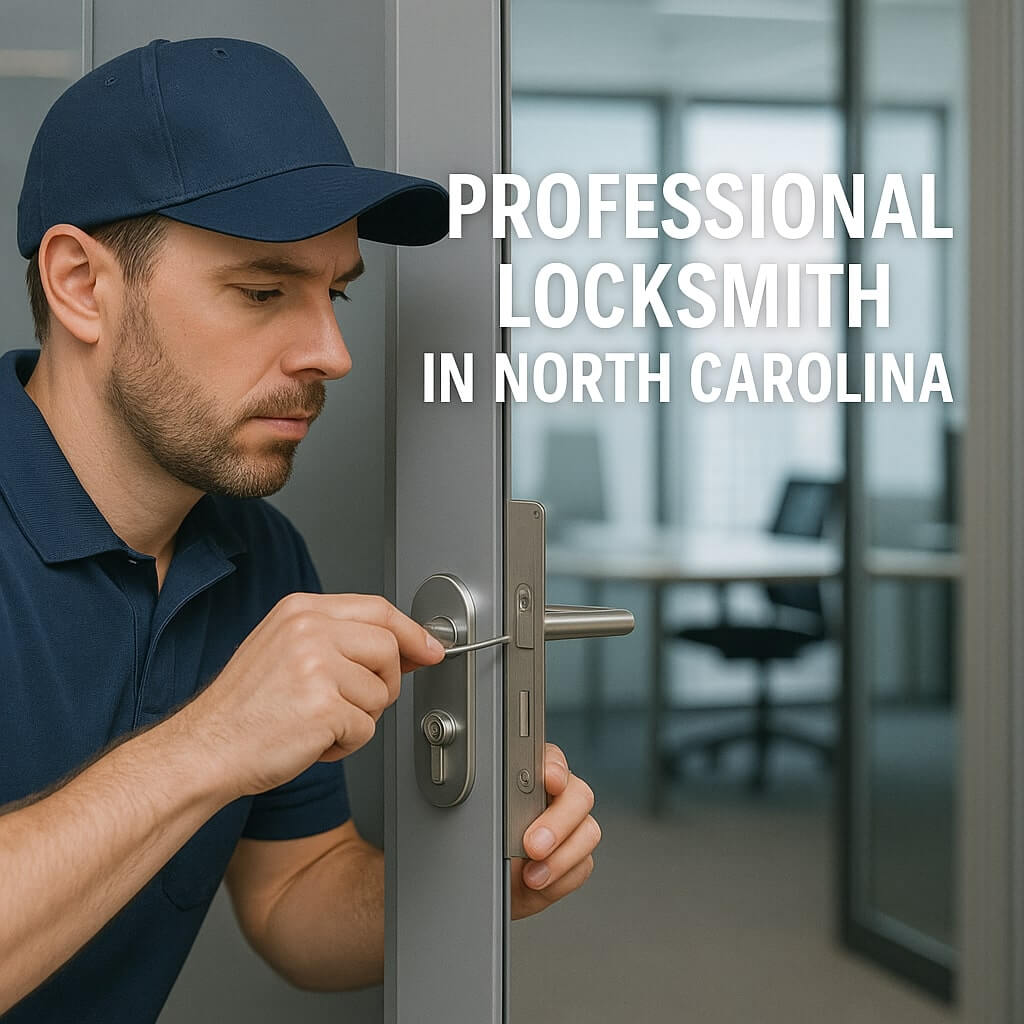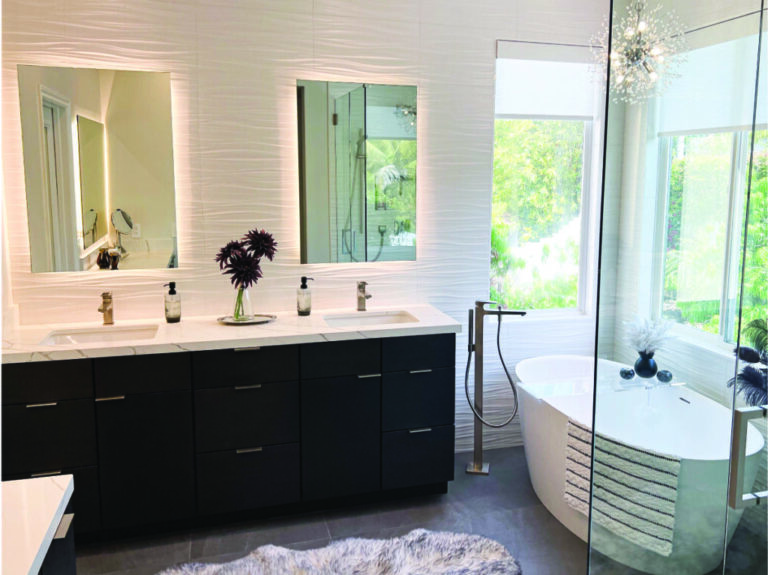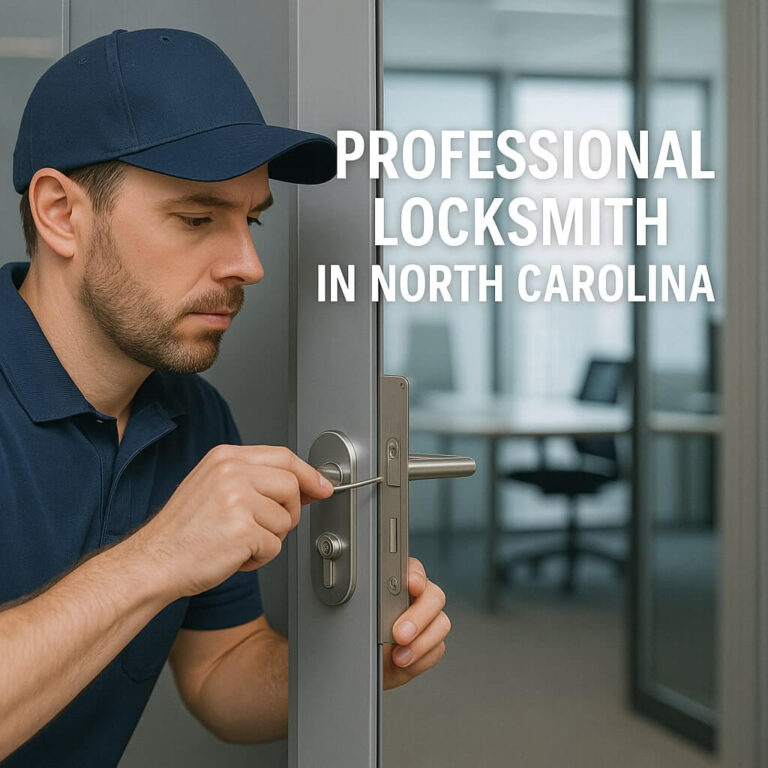Protecting Your Business Guide to Commercial Lock and Security Solutions

In today’s increasingly complex world, safeguarding your business premises, assets, employees, and sensitive data is more critical than ever. Businesses face a multitude of potential threats, ranging from external intrusions like burglary and vandalism to internal risks such as unauthorized access or employee theft. While traditional locks and keys form a basic layer of security, modern commercial operations often require more sophisticated and comprehensive solutions. Professional commercial locksmiths play a pivotal role in this, offering a spectrum of services that extend far beyond simple lock repairs or key cutting. They are security partners capable of designing, installing, and maintaining advanced systems tailored to the unique needs of your enterprise. This guide explores key commercial locksmith services, including access control systems, panic bar installations, and security assessments, to help business owners make informed decisions about protecting their valuable assets and ensuring a secure environment for their workforce.
Core Commercial Security Solutions
Modern businesses require robust security measures to effectively manage access and protect against evolving threats. Core solutions provided by commercial locksmiths are designed to offer enhanced control, safety, and peace of mind.
1. Advanced Access Control Systems
Traditional keys can be lost, stolen, or duplicated, creating significant security vulnerabilities. Advanced access control systems offer a sophisticated alternative, moving beyond mechanical keys to provide precise control over who can enter your facility or specific areas within it. These systems are a cornerstone of modern commercial security, ensuring only authorized personnel gain access.
- Benefits of Access Control:
- Enhanced Security: These systems provide a robust defense against unauthorized entry, significantly reducing the risk of theft, vandalism, or corporate espionage. Some systems include tamper alerts to notify administrators of attempts to breach secured points.
- Audit Trails: A key advantage is the creation of detailed logs of all access events. This audit trail can be invaluable for investigating security incidents, monitoring employee movement, and tracking access patterns.
- Convenience and Efficiency: For authorized users, access becomes seamless, often requiring just a card, fob, PIN, or biometric scan, eliminating the hassle of physical keys.
- Remote Management: Administrators can grant or revoke access privileges remotely, which is particularly useful for managing employee turnover, adjusting access rights in real-time, or responding to security alerts from anywhere.
- Customizable Access Levels: Access control allows for granular control, meaning businesses can set specific permissions for different individuals or groups, restricting access to sensitive areas based on roles or security clearance.
- Integration Capabilities: Many access control systems can be integrated with other security measures, such as CCTV surveillance cameras for visual verification of identity or intercom systems for communication at entry points.
- Enhanced Security: These systems provide a robust defense against unauthorized entry, significantly reducing the risk of theft, vandalism, or corporate espionage. Some systems include tamper alerts to notify administrators of attempts to breach secured points.
- Types of Access Control Systems:
Commercial locksmiths can implement a variety of access control technologies, including:
- Keyless Entry Systems: These commonly involve keypads requiring a PIN code or card readers that scan an authorized credential.
- Biometric Scanners: For higher security, biometric systems use unique physiological characteristics, such as fingerprint readers, for authentication.
- Smart Card Readers: These utilize cards with embedded microchips that store encrypted data, offering a more secure alternative to traditional magnetic stripe cards.
- Proximity Card Systems (RFID): Users present a proximity card or key fob to a reader to unlock a door. These are widely used due to their convenience and reliability.
- Wireless Systems: Wireless access control components can simplify installation, especially in existing buildings where running new wires is challenging.
- Multi-Technology Systems: Some units support multiple authentication methods, such as keypad entry, card reading, and biometrics, offering flexibility based on security policies or user preferences.
- Remote Control Systems: These allow authorized personnel to grant access or lock doors remotely, often via a mobile application or a centralized management platform.
- Keyless Entry Systems: These commonly involve keypads requiring a PIN code or card readers that scan an authorized credential.
The effective implementation of an access control system often requires professional installation to ensure proper functionality and integration with the building’s infrastructure and other security systems.
2. Panic Bars and Emergency Exit Devices
The safety of employees and visitors is paramount in any commercial setting. Panic bars, also known as push bars or emergency exit devices, are critical life-safety hardware designed to allow for fast and unobstructed egress during emergencies such as fires, security threats, or other evacuations. Their primary function is to ensure that occupants can quickly and easily exit a building, even in a panicked state, by simply pushing on the bar or pad. These devices are typically installed on doors that swing in the direction of exit travel and are often mandated by fire codes and building safety regulations.
- How Panic Bars Work and Their Importance:
Panic bars are designed for doors that open to the outside and can be fitted on single or double door configurations. Pushing the bar retracts the latch mechanism, allowing the door to open freely. This intuitive operation is vital in high-stress emergency situations where complex maneuvers could impede evacuation. Properly installed and maintained panic hardware is essential not only for saving lives but also for ensuring legal compliance. - Types and Features of Panic Bars:
There is a diverse range of panic hardware available to suit different needs and security levels:
- Standard Designs: These include traditional touch bars (a flat bar pushed inward) and cross bars (a horizontal bar across the door).
- Alarmed Options: Some panic bars are equipped with battery-powered or electrical alarm systems that sound when the bar is pushed, alerting personnel to an exit being used, which can deter unauthorized use of emergency exits.
- Biometric Integration: Fingerprint biometric panic bars incorporate readers that require fingerprint authentication before the door can be unlocked from the inside for controlled exit or reentry, though primarily designed for free egress.
- Proximity Card Integration: Similar to biometric versions, these use proximity card readers (RFID) to control access or monitor usage, though egress is typically always free once the bar is pushed.
- Wireless Panic Bars: These communicate with access control systems wirelessly, offering flexibility in installation, especially for retrofitting older buildings.
- Multi-Technology Panic Bars: Some units may combine various technologies, such as keypad entry with panic egress functionality.
- Remote Control Panic Bars: These can be integrated into a central system to be locked or unlocked remotely under specific conditions, while still allowing emergency egress.
- Delayed Egress Panic Bars: Commonly used in retail or healthcare, these devices delay the door opening for a set period (e.g., 15-30 seconds) after the panic bar is pushed, while an alarm sounds. This feature helps deter theft by slowing down an escape but will release after the delay to allow exit.
- Exit Alarm Panic Bars: These specifically sound an alarm when the bar is activated, primarily to signal an unauthorized exit attempt in high-security environments.
- Standard Designs: These include traditional touch bars (a flat bar pushed inward) and cross bars (a horizontal bar across the door).
- Integration with Access Control Systems:
Integrating panic bars with access control systems creates a comprehensive security solution. This allows for controlled entry and monitored exits while ensuring that emergency egress is never compromised. In an emergency, access control systems can also be programmed to trigger lockdown procedures on certain doors while ensuring exit doors with panic hardware remain functional for escape.
Professional installation is critical for panic bars to function correctly and meet all safety standards. Locksmiths will assess the specific needs of the facility to recommend and install the appropriate type of emergency exit hardware.
3. Comprehensive Security Assessments and Consultations
Before implementing or upgrading any security measures, it is wise for a business to undergo a professional security assessment. Commercial locksmiths often provide this service, conducting a thorough evaluation of a property’s existing security infrastructure to identify vulnerabilities and potential risks.
- The Assessment Process:
During a security assessment, experts will examine all aspects of your physical security. This includes inspecting locks on doors and windows, access points, perimeter security, existing alarm systems, and even policies related to key control and employee access. They look for weaknesses that could be exploited by intruders or that might compromise safety. - Outcome and Recommendations:
Following the assessment, the locksmith will provide a detailed report outlining their findings and offer recommendations for appropriate security measures. These recommendations are typically tailored to the specific requirements of the business, considering factors like the type of industry, location, nature of assets, and budget. The goal is to develop a customized security plan that effectively addresses identified vulnerabilities. This might involve upgrading locks, installing an access control system, adding panic hardware, or improving surveillance. - Proactive Security:
A security assessment is a proactive step toward preventing breaches, theft, and ensuring a safer environment for employees and customers. Professional locksmiths can also offer valuable tips and ongoing advice on how best to maintain and enhance the security of your premises.
Expanding Your Security: Other Key Commercial Locksmith Services
Beyond the core solutions of access control, panic hardware, and security assessments, professional commercial locksmiths offer a wide array of services designed to address the diverse security needs of businesses.
1. Master Key Systems
For businesses with multiple doors and varying levels of employee access, a master key system offers a practical and secure solution. This system allows individuals with a master key (e.g., owners or managers) to open all or specific groups of locks within the premises, while other employees receive keys that only open designated doors relevant to their roles. Commercial locksmiths are experts in designing and implementing these hierarchical keying systems, which simplify key management significantly while maintaining robust security and control over access to different areas.
2. High-Security Locks and Hardware Upgrades
Standard locks may not provide sufficient protection against determined intruders. Commercial locksmiths can install high-security locks that are designed to resist picking, drilling, bumping, and other forms of forced entry. They can also upgrade existing security hardware, such as installing reinforced strike plates or more robust door frames, to enhance overall physical security. These upgrades are crucial for businesses that store valuable assets or sensitive information.
3. Commercial Lock Installation, Repair, and Replacement
Over time, locks can wear out, become damaged, or require updating due to changes in security needs or personnel. Commercial locksmiths provide comprehensive services for installing new locks, repairing malfunctioning ones, and replacing outdated or compromised locks. This includes services like rekeying door locks (changing the internal mechanism so old keys no longer work), repairing damaged lock mechanisms, and extracting broken keys from locks. Using high-quality lock products ensures durability and long-term security.
4. Key Duplication and Management Strategies
Controlling the creation and distribution of keys is fundamental to business security. Locksmiths offer accurate key duplication services for employees and contractors. More importantly, they can assist in developing key management solutions to ensure proper control and accountability. This can include implementing restricted key systems, where keys can only be duplicated by authorized individuals through the locksmith who controls the patent-protected key blanks, preventing unauthorized copying.
5. Emergency Lockout Services
Being locked out of your business can halt operations, costing time and money. Many professional locksmith north carolina provide 24/7 emergency lockout services for commercial properties. They aim for a rapid response to help businesses regain access as quickly as possible, minimizing disruption. Locksmiths can also offer advice and solutions to prevent future lockouts, such as installing keyless entry systems or establishing better key control protocols.
6. Door Closers and Other Essential Hardware
Properly functioning doors are integral to security. Commercial locksmiths install and adjust door closers to ensure doors shut and latch correctly after use, which is vital for both security and fire safety. They also handle other hardware needs such as installing strike boxes for better latch engagement, peepholes for visual identification, and repairing or replacing locks on storefront doors, file cabinets, and desks.
The Value of Professional Commercial Locksmiths
Choosing to work with a professional commercial locksmith offers numerous advantages beyond just addressing immediate lock-related issues. These experts bring a wealth of knowledge and skill that can significantly enhance your business’s overall security posture.
- Expertise and Experience: Professional locksmiths are highly trained and possess extensive experience with a vast array of lock systems, from traditional mechanical locks to complex electronic access control and smart security technologies. They stay current with the latest industry advancements, security products, and installation techniques. Some locksmith companies pride themselves on having personnel with many years of experience in specialized installations.
- Specialized Services: Some locksmiths undergo advanced training to offer specialized services. This can include forensic locksmithing to assist in investigations after a break-in or expertise in installing and servicing high-end, specialized locking systems found in high-security environments.
- Customized Security Solutions: A key benefit is their ability to develop tailored security solutions. Professionals work closely with business owners to understand their unique needs, budget constraints, and any specific compliance regulations (like fire codes for panic bars) to create a security plan that fits perfectly.
- Quality and Reliability: Reputable commercial locksmiths use high-quality locks and security products sourced from trusted manufacturers, ensuring durability and reliability. Furthermore, their workmanship is often backed by a warranty, providing an extra layer of assurance.
- Efficiency and Prompt Service: Professionals understand that security issues can be urgent. They strive to provide efficient service without compromising on the quality of their work. In emergencies, such as lockouts, a rapid response is a hallmark of good service.
- Compliance and Licensing: Professional locksmiths are knowledgeable about relevant safety and fire codes, ensuring that installations like panic bars and emergency exits meet all legal requirements. In many jurisdictions, locksmiths are required to be licensed. For example, in North Carolina, locksmiths must hold a valid NC Locksmith License, which involves state and federal background checks, fingerprinting, passing an exam, and fulfilling continuing education requirements to maintain licensure. Working with a licensed locksmith ensures they are legally authorized and adhere to ethical standards.
- Security and Peace of Mind: Ultimately, entrusting your business’s security to experienced professionals helps protect your valuable assets, sensitive data, and, most importantly, your employees. This provides business owners with significant peace of mind, knowing their security is in capable hands. Attempting DIY repairs or installations on complex security systems can often lead to errors, void warranties, or even compromise security.
- Insurance: Professional locksmithing companies are typically insured, which protects their clients’ property from accidental damage during service. This is an important consideration when allowing technicians to work on your premises.
Choosing the Right Commercial Locksmith Partner
Selecting the right commercial locksmith is a crucial decision for your business’s security. Consider the following factors to ensure you partner with a qualified and reliable professional:
- Verify Credentials: Always check for licensing where it is required by state or local law (e.g., North Carolina locksmiths must display a valid license). Inquire about certifications, such as ALOA (Associated Locksmiths of America) certification or specialized training like certified Fire Door inspection. Ensure the locksmith company is insured to protect your business against any accidental damage during their work.
- Assess Experience and Reputation: Look for locksmiths with proven experience specifically in commercial security, as business needs differ significantly from residential ones. Check online reviews, testimonials, and ask for references from other businesses they have serviced.
- Inquire About Specializations: Confirm that the locksmith has expertise in the specific services you require, whether it’s advanced access control systems, master keying, high-security lock installation, or panic bar hardware.
- Request On-Site Assessments: A reputable commercial locksmith will often offer to conduct an on-site security assessment to understand your specific needs before providing recommendations or a quote. This demonstrates a thorough and professional approach.
- Transparent Pricing: Seek locksmiths who offer clear, upfront, and competitive pricing without hidden fees. Obtain detailed quotes for any proposed work.
- Local Presence and Availability: A local locksmith may offer faster response times, especially in emergencies, and may have a better understanding of local security concerns or regulations. Some locksmiths operate from brick-and-mortar locations where you can view products and discuss your needs in person, in addition to offering mobile services. Ensure they offer 24/7 availability if emergency services are important to your business.
In the contemporary business environment, robust security is not a luxury but a fundamental necessity. Protecting your assets, ensuring employee safety, and maintaining operational continuity depend heavily on the effectiveness of your security measures. Professional commercial locksmiths are invaluable partners in this endeavor, offering a spectrum of advanced solutions from sophisticated access control systems and life-saving panic hardware to comprehensive security assessments and master key systems. Investing in the expertise of a qualified commercial locksmith is an investment in your business’s resilience, safety, and long-term success. By proactively engaging with security professionals and implementing tailored solutions, business owners can create a secure environment that fosters confidence and protects their enterprise from a myriad of potential threats.
Frequently Asked Questions (FAQs)
1. What is an access control system and why does my business need one?
An access control system is an electronic security solution that manages and monitors who can enter a building or specific areas within it, typically using credentials like key cards, fobs, PIN codes, or biometric data (e.g., fingerprints) instead of traditional mechanical keys. Your business might need one to enhance security by preventing unauthorized access, to create detailed audit trails of entry and exit activity for accountability, to simplify access management (e.g., easily revoking access for former employees without changing locks), and to provide customizable access levels for different personnel, thereby protecting sensitive areas and assets more effectively.
2. Are panic bars only for emergency exits, or do they offer other security benefits?
Panic bars (or emergency exit devices) are primarily designed for life safety, allowing for quick and easy egress during emergencies like fires, ensuring compliance with fire codes. While their main function is safe exit, they contribute to overall security. When integrated with access control systems, they help ensure that emergency exits remain secure against unauthorized entry from the outside while always allowing free exit from the inside. Many panic bars can also be equipped with alarms that sound when the bar is pushed, deterring unauthorized use of emergency exits for non-emergency purposes (like theft) and alerting security personnel to such events. Some advanced panic bars can feature delayed egress, which briefly delays opening while an alarm sounds, further deterring theft in certain environments.
3. How do I know if a locksmith is qualified and trustworthy, especially for my business’s security?
To ensure a locksmith is qualified and trustworthy for your business’s security, start by checking for proper licensing if required in your state (for instance, North Carolina mandates locksmiths to be licensed, which includes background checks and ongoing education). Look for certifications from recognized industry organizations like ALOA, or specialized training relevant to your needs (e.g., fire door inspection certification). Verify that the locksmith company is insured to protect your property against accidental damage during service. Assess their experience, particularly with commercial security systems, and look for positive reviews or ask for references from other businesses. Be wary of unusually low quotes or unmarked service vehicles. It’s also generally advisable to avoid DIY solutions for complex business security systems, as improper installation can compromise your security and may be costly to fix.






